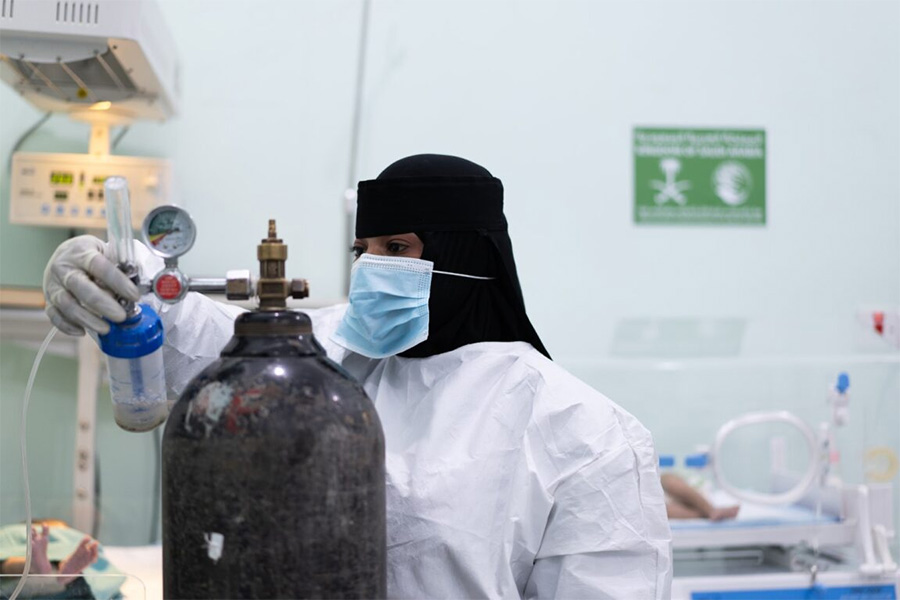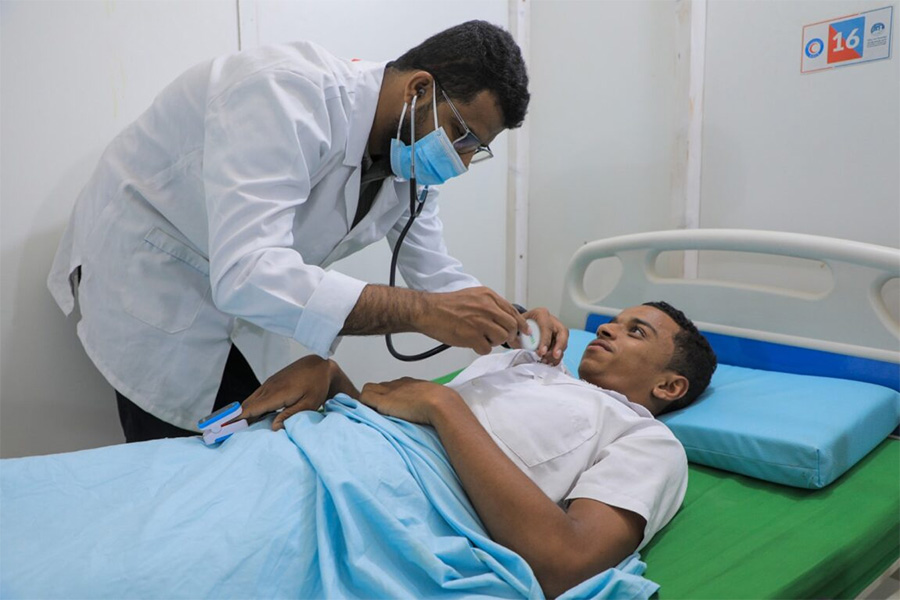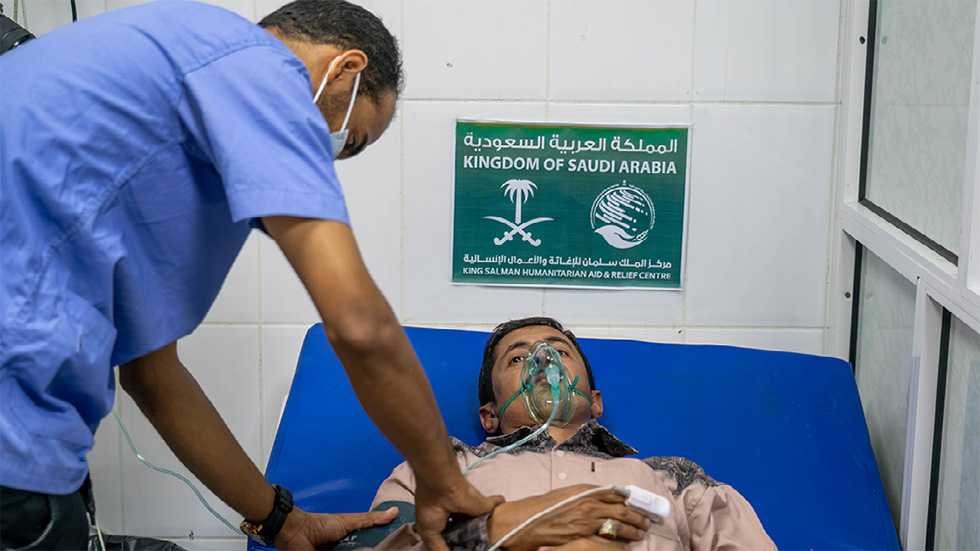Yemen’s struggle: a need for oxygen amid the crisis
Due to the crisis in Yemen has left many health facilities grappling with urgent needs that must be met to be able to provide essential health services. These needs include electricity and fuel: a shortage affecting both the public and private sectors and disrupting oxygen production is making an already critical situation worse.
Medical oxygen is a life-saving and therapeutic treatment for various medical conditions. These include both acute and chronic diseases such as respiratory diseases, cardiovascular diseases, COVID-19 and pneumonia, along with critical complications across all age groups. Demand for oxygen is growing, yet in many countries, including Yemen, delivering the much-needed quantity to the health system remains a significant challenge.
Oxygen is indispensable in Yemen’s clinics and hospitals. It is necessary for surgeries, maternal and child care and the treatment of medical conditions such as asthma and pneumonia. Epidemics have strained Yemen’s medical oxygen supply, and ongoing conflict has left hospitals and clinics without easy access to fresh oxygen supplies, worsening the challenges they face.
KSrelief’s vital role: transforming health care in Yemen with the Five Oxygen Stations initiative
 With generous support from King Salman Humanitarian Aid and Relief Centre (KSrelief), WHO has implemented a transformative project, installing 5 oxygen stations across Abyan, Hadhramaut, Al Maharah, Marib and Shabwah governorates in Yemen. These stations, each set up in a major hospital, address the critical need for a sustainable medical oxygen source in remote health facilities.
With generous support from King Salman Humanitarian Aid and Relief Centre (KSrelief), WHO has implemented a transformative project, installing 5 oxygen stations across Abyan, Hadhramaut, Al Maharah, Marib and Shabwah governorates in Yemen. These stations, each set up in a major hospital, address the critical need for a sustainable medical oxygen source in remote health facilities.
This strategic move not only cuts costs but also fortifies health facilities, stabilizing operational capacities and ensuring a reliable source of medical oxygen. The impact extends beyond basic care to also benefit intensive care units, nursery units, emergency units, operating theatres and other treatment units.
The project has surpassed expectations, touching the lives of 235 943 beneficiaries, including 85 454 people who received life-changing oxygen therapy. This initiative has gone beyond its goals, significantly enhancing the health care landscape and health and well-being in the 5 governorates.
Life breathes easier: Dr Al-Zubaidi unveils the impactful journey of KSrelief’s oxygen station in Tarim district
 WDr Mohyeldin Al-Zubaidi, who holds a degree in general medicine and surgery, is a dedicated general practitioner in the emergency room of Tarim Hospital, Hadhramaut. Day after day, he tirelessly attends to urgent and non-urgent cases, providing crucial medical interventions to those in need.
WDr Mohyeldin Al-Zubaidi, who holds a degree in general medicine and surgery, is a dedicated general practitioner in the emergency room of Tarim Hospital, Hadhramaut. Day after day, he tirelessly attends to urgent and non-urgent cases, providing crucial medical interventions to those in need.
The COVID-19 emergency posed an unprecedented challenge for the hospital and its staff. An absence of the necessary interventions, especially oxygen-related treatments, compelled patient transfers, causing immense distress to families and caregivers. Dr Al-Zubaidi and his colleagues ardently advocate for the full range of services in all hospitals to ease the burden on patients and their loved ones.
“This hospital has a remarkable impact on the community,” remarked Dr Al-Zubaidi. “The Tarim district has witnessed a significant improvement in health care access due to the installation of a cutting edge oxygen station at the hospital. People can now easily access the oxygen supply they need.”
Dr Al-Zubaidi’s team cares for a diverse range of people, including society’s most vulnerable. The hospital supports those in critical need, such as elderly people, newborns and infants suffering from heart and lung disorders or congenital heart problems. The oxygen station has transformed their well-being, breathing new life into their existence.
“In the past, patients had to travel long distances to different districts in search of oxygen, risking fatalities and encountering additional health complications due to the distance and lack of available services,” explained Dr Al-Zubaidi. “However, with the establishment of the oxygen station in the Tarim district, it has become a cornerstone for the area, a testament to the transformative power of compassion and a single initiative on an entire community.”





